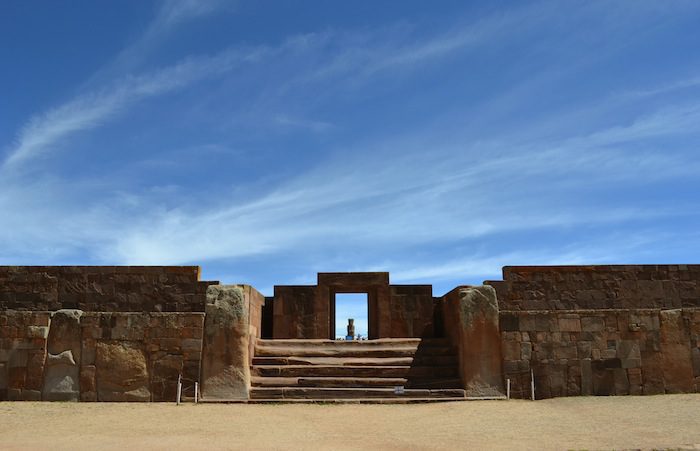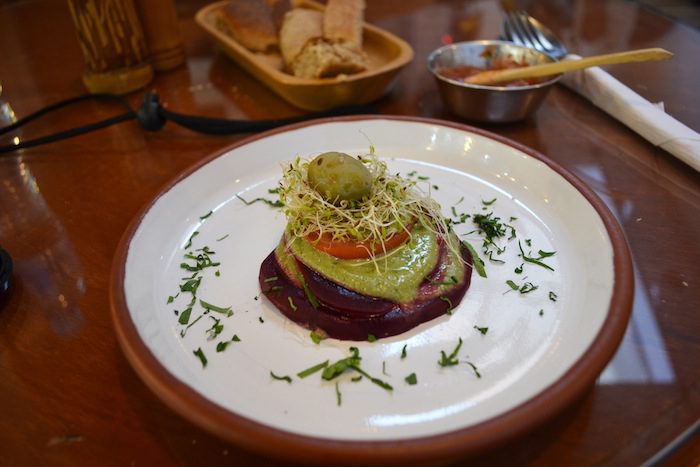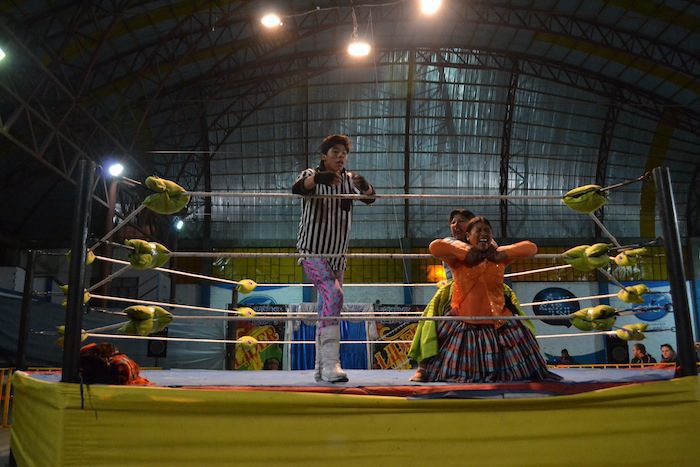You’ve probably heard that Bolivia is cheap. But just how cheap is it really? Well, so cheap that I got into a heated argument with a bus driver over 0.75 USD. That’s how cheap.
The landlocked, import-restricted country certainly doesn’t have a booming economy, which leads many South America backpackers to simply stop by to give their wallet some breathing room between more pricy adventures in Chile, Argentina and Brazil. To paint a picture of what 70 Bolivianos (at the time of writing, this is the equivalent to 10 USD) can get you, here is a list of items and activities where that cash sure is well spent.
Cost: 70 Bs

This is actually priced at 80 Bs for tourists, while being 10 Bs for Bolivians. However, with some nifty bargaining skills you can get the price down to 70 Bs.
The pre-Inca ruins are located just about two hours outside La Paz (you can easily catch a bus either from El Centro or El Alto). The entrance grants you access to all ruins including the sun gate, the courtyard and different statues. At a high altitude the sun is very strong so bring plenty of sunscreen!
Cost: 70 Bs
Bolivians are crazy for peanuts. Forget the American butter version, here the bendy nut has taken on new creative forms in both drinks and soups. That’s right- there’s peanut soup! And there is no place better to sample it than at the market in El Alto.
The price? 7 Bs per serving. So if you’re feeling particularly generous, this is a perfect place to invite your travel mates for some lunch.
Cost: 60 Bs
The hostel options in Toro Toro are not plenty, which is understandable considering the size of the town. Hotel Los Chocos offers an extremely cheap option (20 Bs per night). The only problem here is that the hang locks on the doors don’t work. Neither do the doors open completely so you will find yourself having to squeeze through the crack with your backpack. But hey, it’s a great option for the frugal (and hopefully slim) traveler and only a few blocks from the dinosaur-themed main square where tickets for Parque Nacional Toro Toro are sold.
Cost: 70 Bs
Bolivia’s bus ticketing system seems to work on an hourly basis. Tickets are usually priced depending on how many hours the journey takes with a standard 7 Bs per hour. This means that your 10 USD can take you all the way from the world’s largest Jesus statue, Cristo de Concordia, in Cochabamba to La Paz’s lively city center (a 9-11 hour ride), or, during low season you can travel about 14 hours from La Paz to the largest city in the Bolivian Amazon- Rurrenabaque. For those willing to splurge on the semi-cama or full cama reclined seat options -be prepared to spend a few more Bolivianos.
Cost: 50 Bs

The mecca for any vegan or vegetarian. This local spot is one of very few in La Paz that cater to non-meat-eaters. Just like any other Bolivian restaurant they too offer the set almuerzo menu. The food is incredibly fresh being all locally produced, the staff extremely friendly and the dishes are oh-so creative with anything from vegetarian feijoada, to oat burgers and chocolate tea. Best part? Everything on their menu is health-focused making it that much easier to gorge down your four dishes guilt-free (and maybe even treat yourself to one of their amazing granola cookies as a dessert).
Cost: 70 Bs

Tour agencies flocking Calle Sagarnaga in the center of La Paz are saturated with posters of cholita wrestling. Sounds odd, huh? In case you don’t know what “cholitas” refer to, it is a term used for indigenous women in Bolivia.
And the “wrestling” part?
Well, that’s just good ole’ wrestling.
Every Sunday and Tuesday El Alto puts on these bizarre yet entertaining shows. The ticket also gives you a bag of popcorn with a drink and a little souvenir at one of the arena “shops”.
Price: 70 Bs
A “Gringo” must-buy. Not only do they amp up the level of coziness on any chilly Andean night but they also make for perfect gifts. Just be sure to bargain.
This post was written by Josefine Gyllensporre, author of travel blog fomomademedoit.com.
Read more about her travels in Bolivia and elsewhere around the world on the blog.
Counter
101 Countries • 1432 Cities